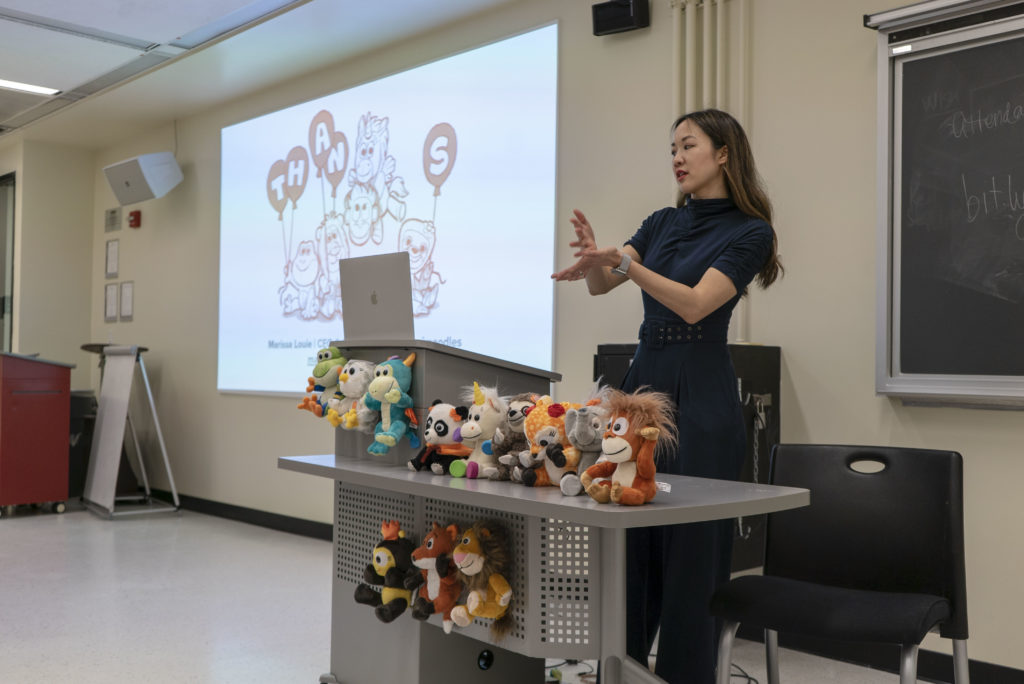
Last week, alum Marissa Louie (‘05 Interdisciplinary Studies — Business, Economics, & IEOR) visited the Sutardja Center’s product design course to talk about storytelling for designers and why diversity is the cornerstone of her brand.
After graduating from Cal, Marissa founded three companies, was an art director at Apple, and principal designer at Yahoo. She also helped build a startup called Ness Computing, which was acquired by OpenTable.
After gaining this valuable experience, Marissa felt she was ready to apply her skills to something that really mattered to her. And after some soul-searching, Marissa remembered something that really gave her joy as a kid: stuffed animals.

“It wasn’t necessarily glamorous or something that I wanted to brag about to my friends… But I thought, this is me, this is what I care about,” said Marissa.
So, Marissa put her capable mind to the task of building a disruptive toy startup.
And the toy industry was ready for something new. According to Marissa, it hasn’t changed much in the past 100+ years, especially in the area of stuffed toys. For example, the design for the teddy bear has essentially stayed the same since 1902. So, Marissa thought, what if she could design them better? What if she could give people a good reason to want more of them?
One aspect that Marissa believed she could improve was the story behind the toys that she wanted to create.
“It’s our ability to tell stories that get others really engaged and wanting to support us,” said Marissa. “What I realized is that I used to tell stories to myself as a little girl with my stuffed animals. I was just telling stories — but what I noticed is that in a lot of the themes of the stories I had included friendship, cooperation, empathy, justice, equality and things that were so core to the human existence. And so many of these themes are also part of what we combine into the Animoodles today.”
Ultimately, Marissa created an innovative stuffed animal prototype: a little stuffed bear featuring removable arms, head, and legs. For Marissa, this design helped her achieve two things:
- The toy would be more fun because it would allow kids to be creative in their play, switching arms, heads, and legs, and
- The more animals that kids collected, the more valuable and fun each toy would be as there would be more options to mix and match — e.g. a lion’s head on a bear’s body.
Marissa knew that in order to tell rich stories, that she would need great characters. She was able to get a meeting with Dan Holland, a very successful character artist and animator who worked on many Disney and Pixar movies including Inside Out, The Incredibles, and WALL-E.
Before creating stories for her new stuffed animals, Marissa knew she’d first have to get her own story in order to convince Holland that he should embark on this journey with her.
To convince him, she started with history, and how teddy bears have not changed much. She acknowledged that Beanie Babies were different, but even those weren’t interactive. She told him how she wanted to design better stuffed animals. She wanted there to be a reason to collect them all, and for each one to have its own story.
But she was a bit nervous about showing him her prototype.
“Was I really going to show this art director from Pixar, who has created these amazing characters, my little hand-sewn thing?” She asked her husband, alum Corey Reese, (’07 Business Administration), “Are you sure I should do this? He might just laugh me out of the building.”
He didn’t. Dan has two twin daughters who were four years old at the time, and they loved stuffed animals. He thought Marissa’s idea was great and was excited to lend his expertise.
So, Marissa’s vision came to life, and she and Dan Holland founded The Animoodles.
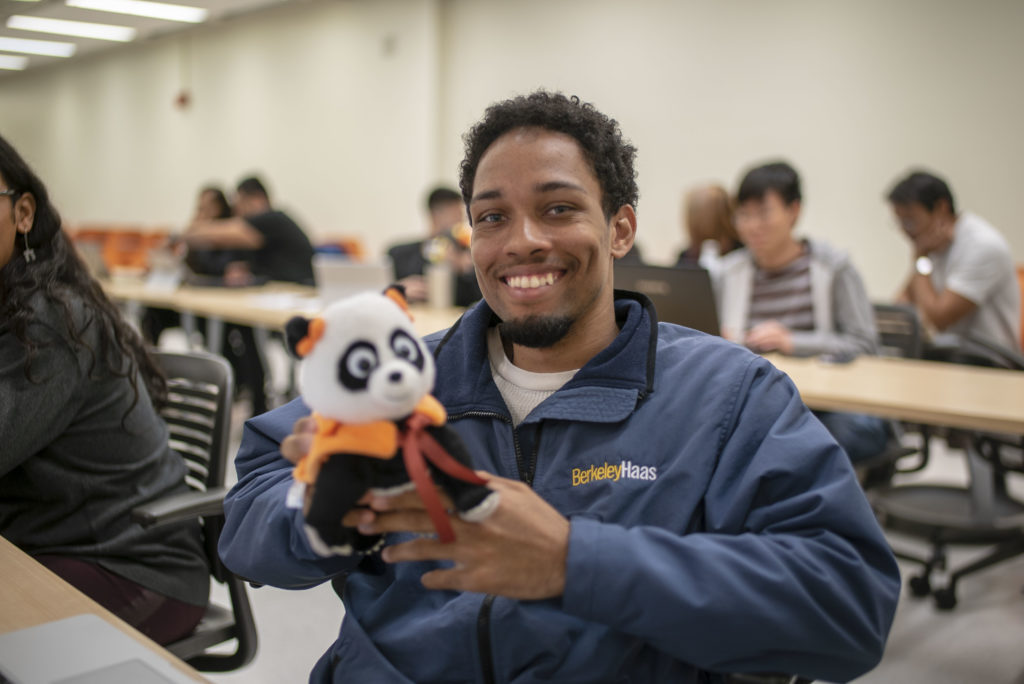
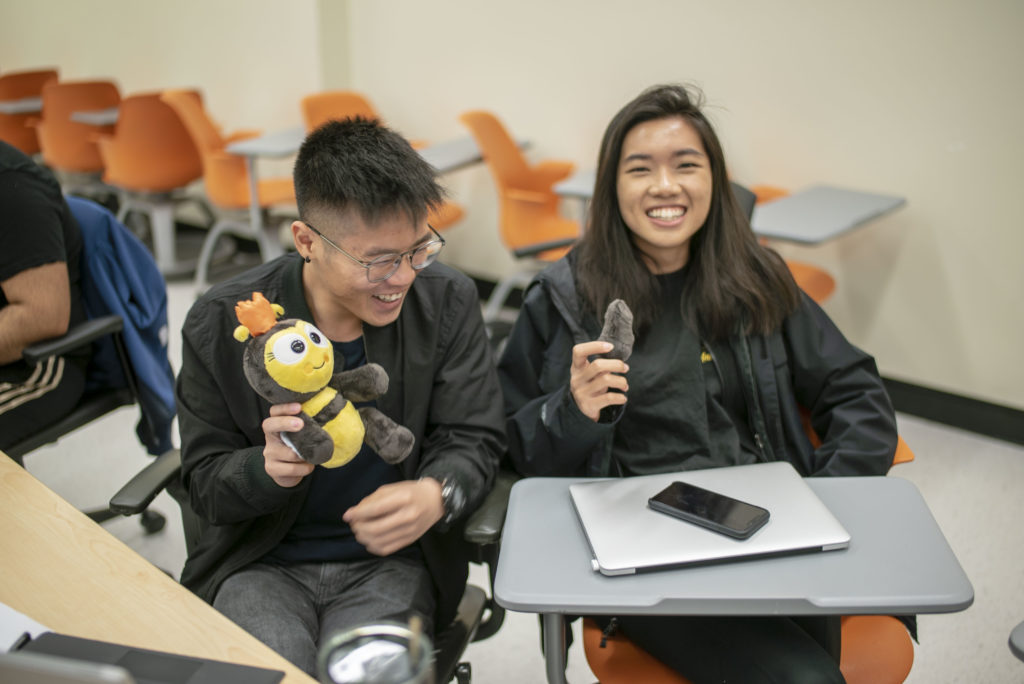
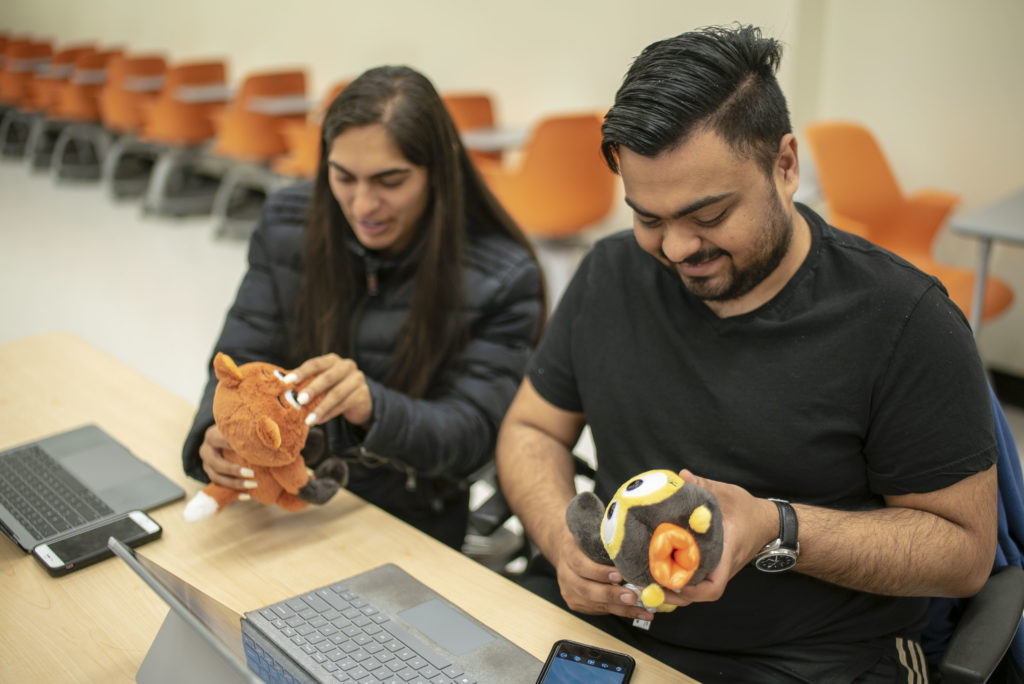
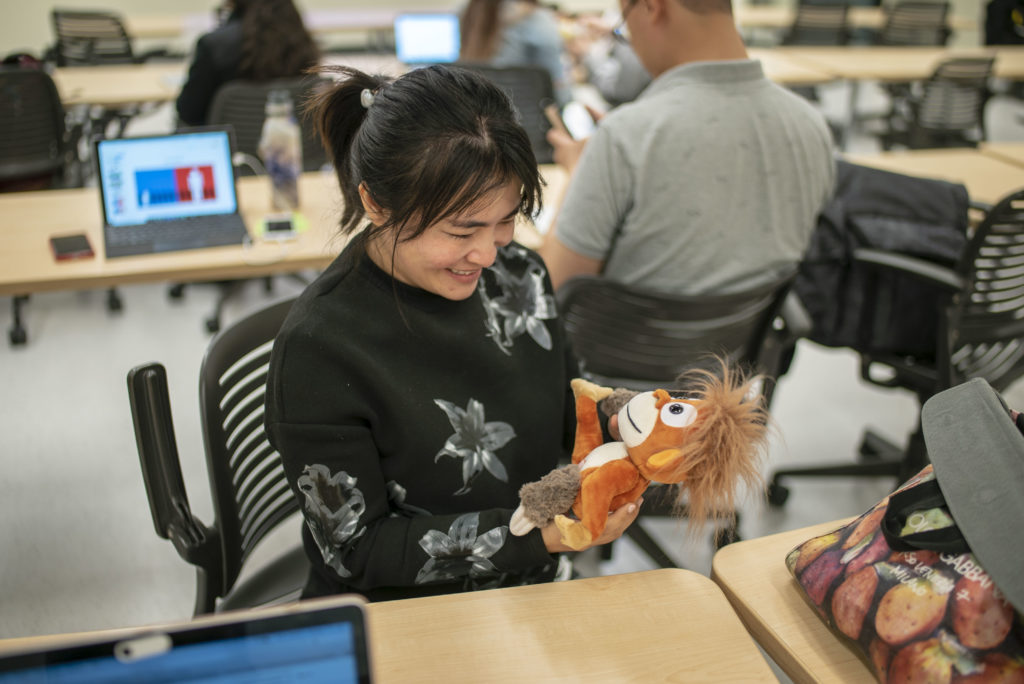
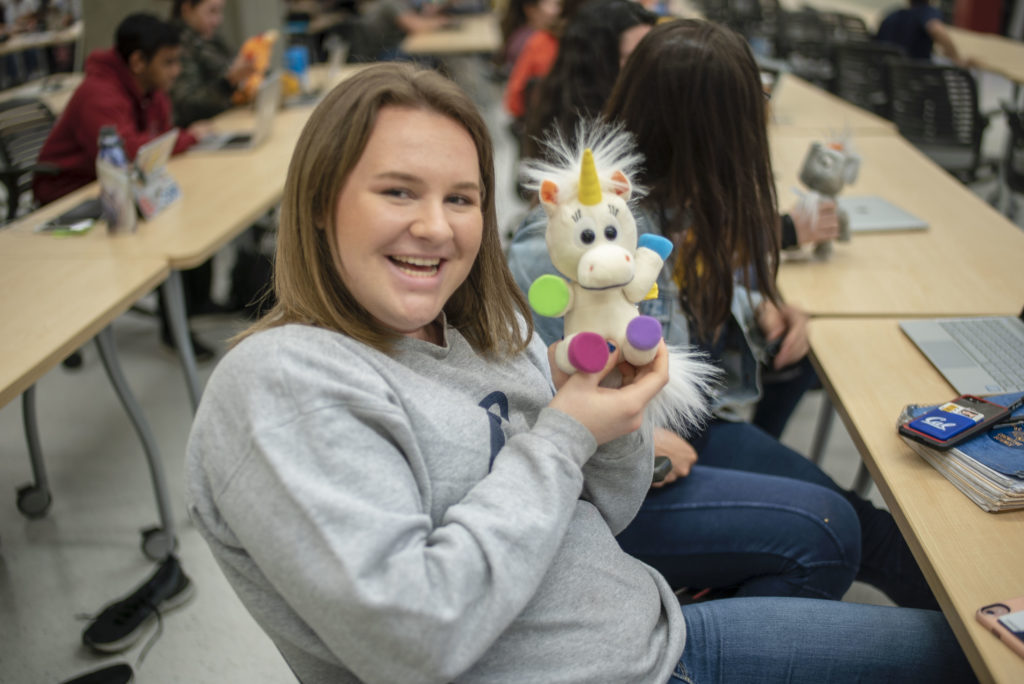
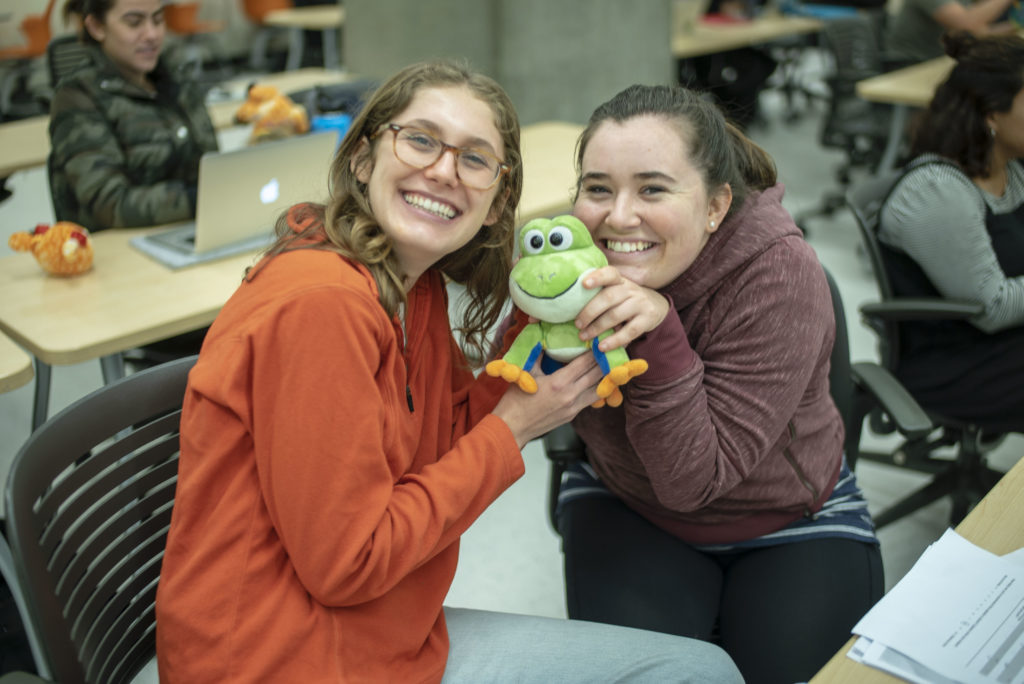
But the work was far from over. What characters would they create? What would their stories be?
Marissa thought that diversity would be the most important element in their storytelling, “Why is diversity important? We seek diversity because we all see the world in different ways. We have different perspectives. It also keeps life interesting and engaging. And having empathy for diverse life experiences keeps your designs relevant.”
“I’d almost say that it’s irresponsible to not have a diverse management team, because your company is not performing at the level it can, and shareholders suffer.”
Marissa Louie
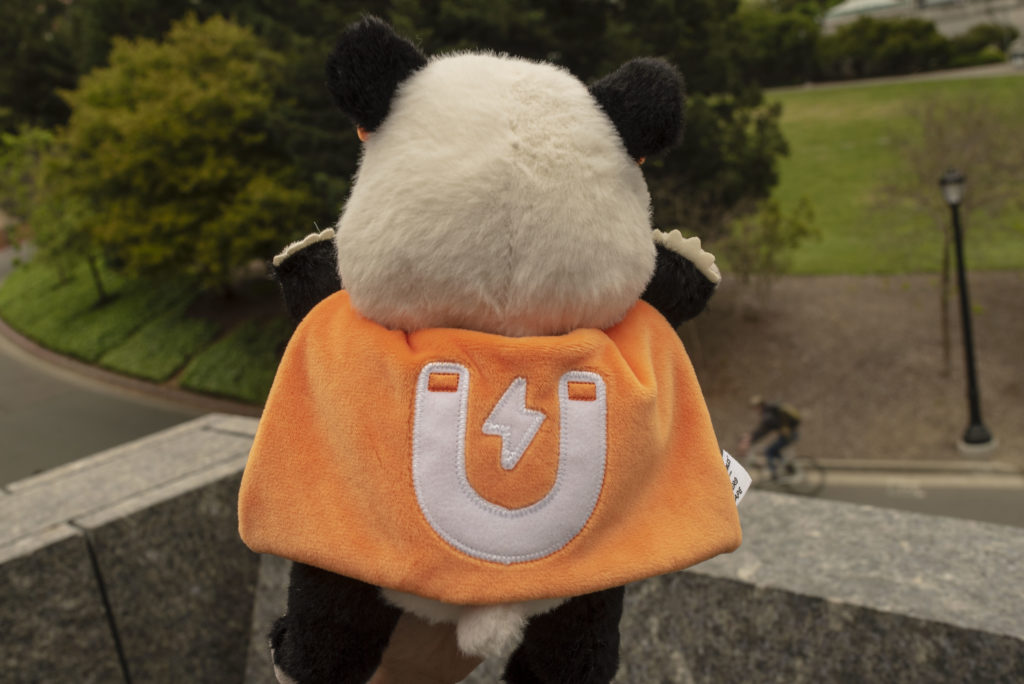
By telling diverse stories, Marissa thought that they could reach more people with their toys and make more of their customers feel included. Not only that, but companies with diverse leadership are more innovative on average, and produce 19% more revenue, according to a report by the Boston Consulting Group.
“I’d almost say that it’s irresponsible to not have a diverse management team, because your company is not performing at the level it can, and shareholders suffer,” said Marissa.
The toy industry specifically could learn from this. Marissa points out that in an industry where the majority of end consumers are women — our moms, sisters, aunts, and grandmas — the top 36 toy companies all have CEOs that are men.
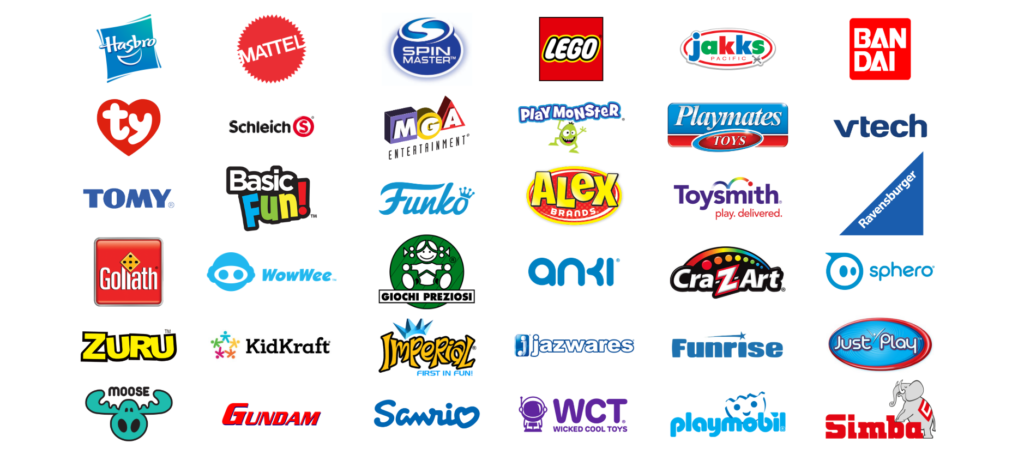
“So, that’s a problem,” said Marissa. “At the fundamental root of that is why so many girls are asking for different kinds of toys now that appeal to them. They are saying ‘Hey, I want to be an engineer too; I want to be a designer too; I want to be CEO; I want to be president.’ And so until we change [this industry] little girls can’t see themselves in these roles. They can’t tell those stories to themselves of what to do.”
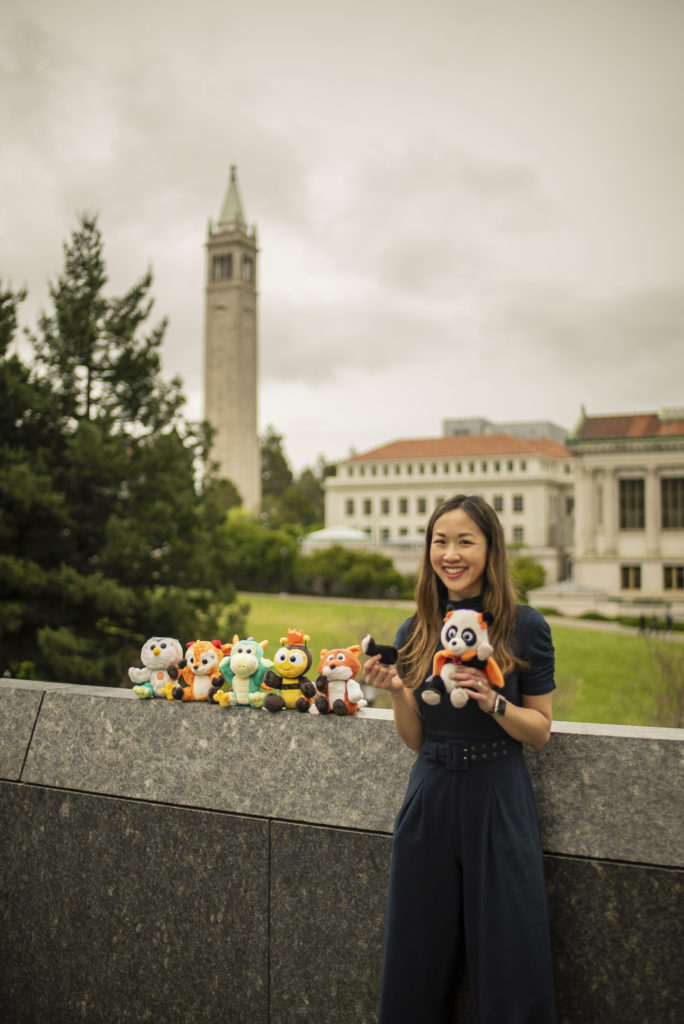
So for Marissa, this is the big storytelling challenge for The Animoodles. She believes that by telling whole-hearted stories that she can help those who are different be seen. For her, it takes courage to show characters that may be labeled as “other,” but if it can help engender empathy in kids, and help them welcome their diverse peers, it will be worthwhile.
“As students from UC Berkeley, you are some of the most incredible thinkers on Earth,” Marissa told the students as she was closing her talk. “You are some of the smartest people that are alive today. And I think [being here gives you the] ability to tell the most powerful stories, because of the training that you’ve had here at Cal, your diverse friend circles, your diverse professors, diverse student body — bring that into what you do, don’t be afraid to tell these stories.”
Marissa and Animoodles have won top toy industry awards including Amazon’s Best Selling Stuffed Animals and Toys in December 2018, Dr. Toy’s Top 10 Toys of 2018, Women In Toys Rising Star 2019, and Mojo Nation’s 100 Most Influential Figures in Toy and Game Design. Animoodles are available for purchase on Amazon
